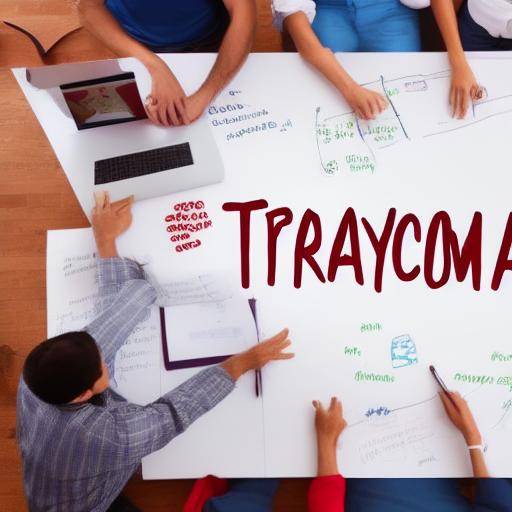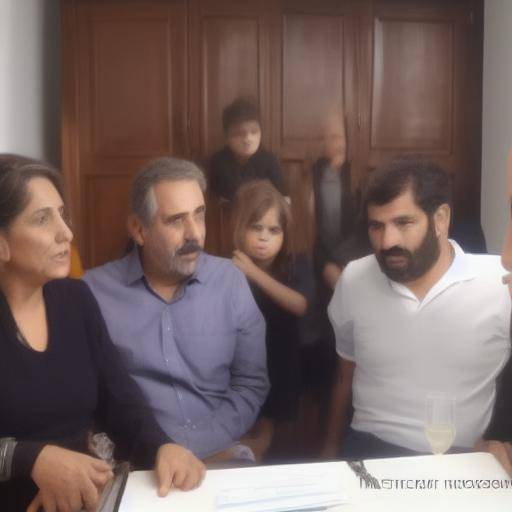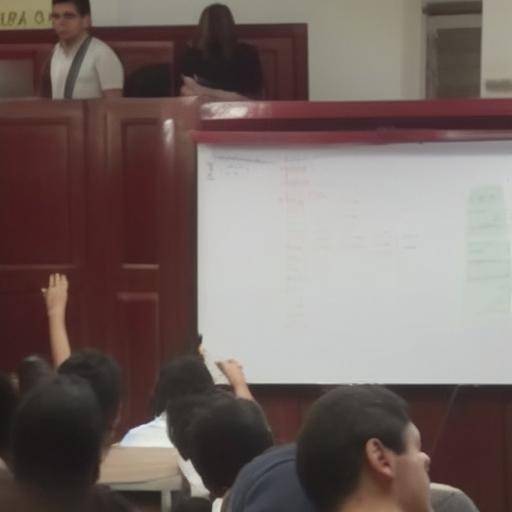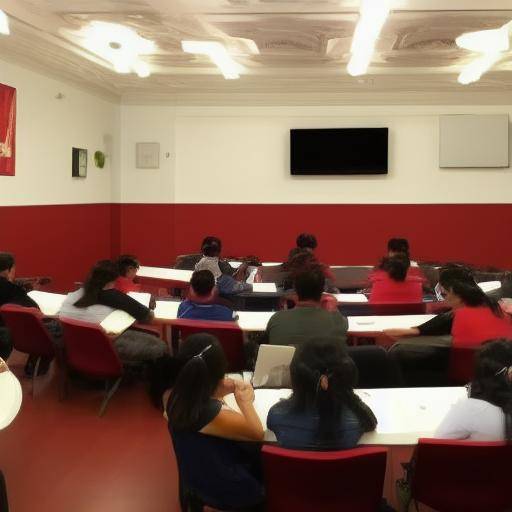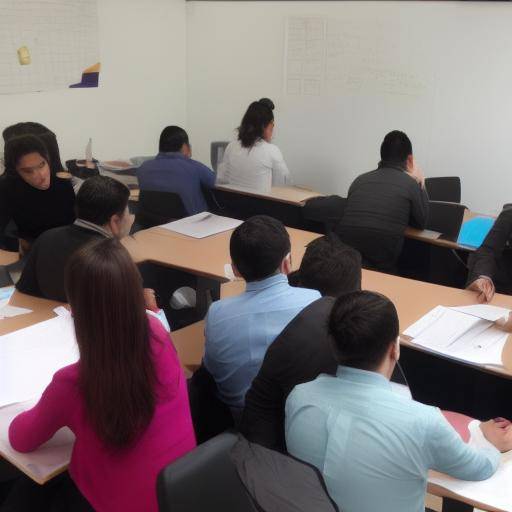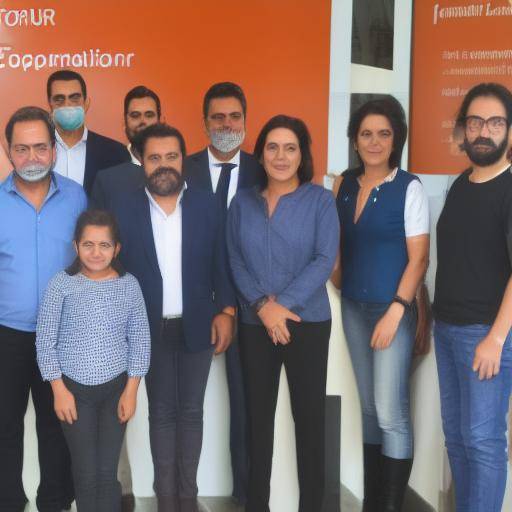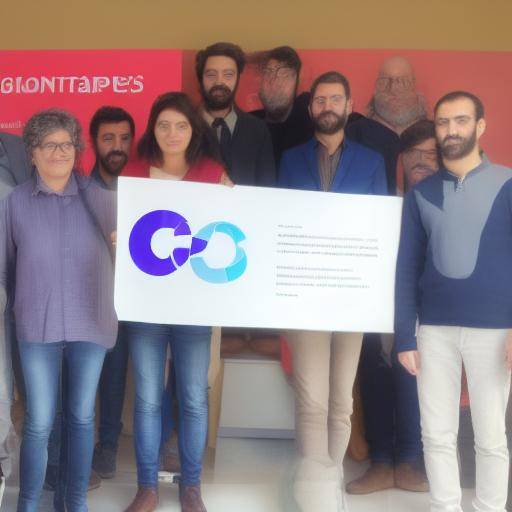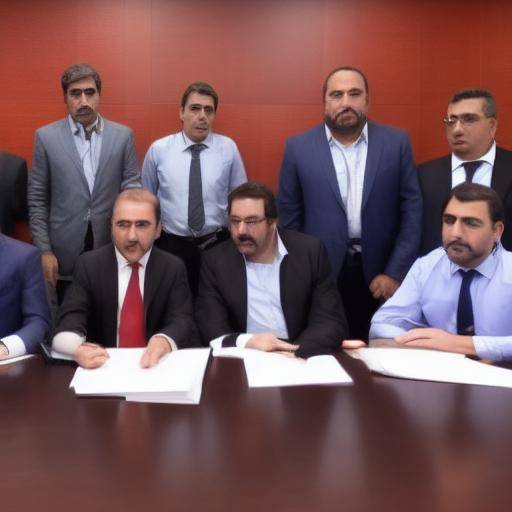
Introduction
Conflict management in the team is a crucial aspect for the success of any organization. Conflicts are inevitable in a working environment, but knowing how to handle them effectively can make the difference between chaos and harmony in the team. In this article, we will explore practical strategies to address and resolve conflicts in the working environment, which will help to foster a positive and productive working environment.
History and Background
Conflict management has been an issue of interest for many years. Throughout history, various theories and approaches have been developed to address this issue. From the first theories of conflict resolution in ancient times to modern approaches, the concept has evolved significantly.
In the 1950s, there was a significant change in how conflicts were addressed in the working environment, with the adoption of more collaborative and problem-oriented approaches. Over the years, many models and theories have been developed to address conflicts, from the negotiating model to more specialized approaches such as mediation and conciliation.
Studies have shown that effective conflict management has many benefits, such as improving team morals and productivity, reducing labour stress and promoting a positive working environment.
Analysis in Deep
Conflict management in the team presents a number of challenges and benefits. Although it can be challenging, effectively addressing conflicts can result in a more united and productive team. Conflict management has now become an essential aspect of leadership, as leaders must be prepared to deal with conflicts proactively.
Statistics show that up to 85% of employees experience labour conflicts at certain times of their career, highlighting the importance of having effective strategies for their management. In addition, recent research has shown that unresolved conflicts can have a significant impact on the results of the team and the company as a whole.
Comprehensive review
To effectively address conflicts, it is essential to have a set of sound strategies. Effective communication, confidence-building and the ability to listen actively are critical for the management of team conflicts. In addition, the capacity of leaders to mediate and facilitate conflict resolution is essential.
Understanding the origin of conflicts and adopting a proactive approach to addressing differences before they escalate. The establishment of clear policies for conflict resolution and the promotion of an atmosphere of openness and transparency are critical steps to foster a harmonious working environment.
Comparative analysis
Conflict management, strategies and teamwork are intrinsically related. The ability to handle conflicts effectively in a working environment is essential to foster team collaboration and cohesion. Identifying and tackling conflicts proactively can have a significant impact on the dynamics of the equipment and the results obtained.
It is important to note that conflict management is not only about resolving disputes, but also fostering a culture of mutual respect, understanding and collaboration. When dealing with conflicts proactively, a precedent is set for respect and effective communication in the working environment.
Practical Tips and Accessible Advice
Here are some practical tips for conflict management on the team:
- Promote open and honest communication.
- Establish clear policies for conflict resolution.
- Promote an environment of mutual trust and respect.
- Develop active listening skills.
- Promote empathy and understanding among team members.
By implementing these strategies, leaders can foster a positive and productive working environment, where conflicts are constructively addressed and used as opportunities for growth and improvement.
Industry and Expert Reviews Data
According to experts in conflict management, the ability to deal with conflicts proactively is a key aspect of effective leadership. Establishing a working environment where employees feel safe when expressing their concerns and differences is a critical factor for the long-term success of any team.
Leaders must be prepared to play an active role in conflict resolution, fostering open communication, defining clear expectations and supporting team members in dispute resolution.
Case Studies and Applications in Real Life
A notable example of effective conflict management in the team can be seen in a leading technology company. In the face of an internal conflict that threatened to affect the dynamics of the team, the leader organized mediation and conflict facilitation sessions to address the differences between key team members.
As a result of these conflict management strategies, a more collaborative working environment was promoted and team cohesion strengthened. Employees reported a significant improvement in communication and problem solving, leading to increased productivity and overall labour satisfaction.
Future Trends and Predictions
As the working environment evolves, conflict management is expected to continue to play a crucial role in team management and leadership. The ability of leaders to effectively address conflicts will be a determining factor in the ability of an organization to maintain a positive and productive working environment.
Technology is expected to play a growing role in conflict management, with the development of collaborative and communication tools that facilitate dispute resolution. In addition, an increasing focus is expected on training in conflict resolution and diversity management skills in the working environment.
Conclusion
In short, conflict management in the team is a crucial aspect of promoting a culture of positive and productive work. By adopting effective strategies, leaders can transform conflicts into opportunities for growth and improvement for the team. Open communication, empathy and the ability to address conflicts in a constructive manner are essential to fostering a harmonious working environment.
In addition, understanding and implementing conflict management strategies can make the difference between a team struggling with dysfunction and lack of productivity, and one that stands out in its collaboration and collective achievements.
Frequently asked questions
What is the importance of conflict management in the team?
Conflict management in the team is crucial, as labour conflicts can affect the performance, morality and cohesion of the team. In effectively addressing conflicts, a harmonious and productive working environment is promoted.
What are some effective strategies for conflict management in the team?
Some effective strategies include open and honest communication, the promotion of empathy and the establishment of clear policies for conflict resolution. In addition, the ability of leaders to mediate and facilitate dispute resolution is fundamental.
How can leaders foster a positive working environment in relation to conflict management?
Leaders can foster a positive working environment by promoting trust, openness and empathy among team members. In addition, establishing clear expectations in conflict resolution and supporting employees in dispute management are critical to creating a positive environment.
What role does technology play in conflict management in the team?
Technology can play an important role in facilitating communication and collaboration in conflict resolution. Tools such as collaboration and communication platforms can facilitate dialogue and dispute resolution, especially in distributed teams.
How does effective team conflict management affect productivity and job satisfaction?
Effective conflict management can lead to increased productivity, as it promotes greater collaboration and effective communication on the team. It can also improve job satisfaction by creating a more harmonious and collaborative working environment.
What skills are essential for effective team conflict management?
Skills such as effective communication, empathy, active listening capacity, mediation and problem solving are essential for effective management of team conflicts. Furthermore, the ability to create an atmosphere of trust and openness is crucial.
How can leaders evaluate the effectiveness of their team conflict management strategies?
Leaders can assess the effectiveness of their conflict management strategies by monitoring team dynamics, conflict frequency and employee satisfaction. In addition, seeking direct feedback from team members can provide valuable information on the effectiveness of the strategies implemented.
With this comprehensive team conflict management guide, readers will have a deep understanding of strategies and best practices to address and resolve conflicts in the working environment. In implementing these effective strategies, team leaders and members can foster a culture of collaborative, productive and harmonious work.
Note: This is a reference guide and does not replace professional advice. For more complex conflict situations, it is recommended to seek guidance from a qualified practitioner in conflict management or human resources.



